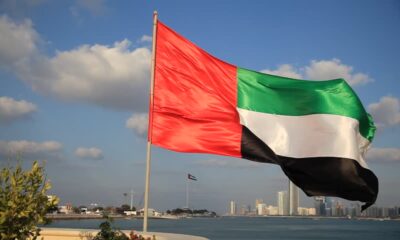Featured
Rectifying Nuclear Imbalance with Israel should be a strategic priority for Egypt, SA and Turkey
Published
3 years agoon
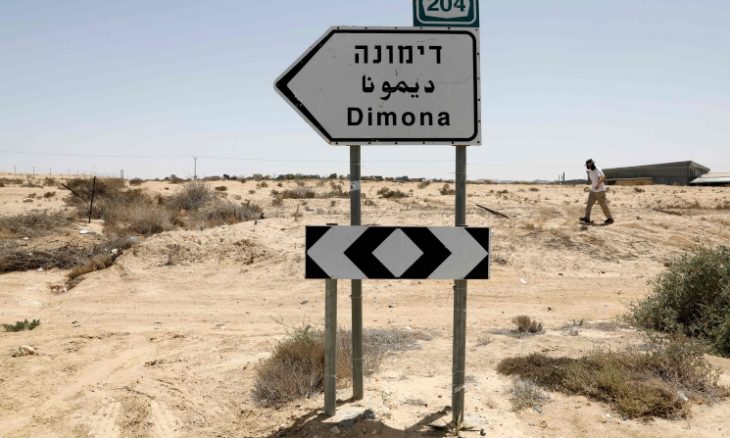
Thanks to America’s dark embrace of Israeli fascism and Lebensraum policies, the Israeli nuclear arsenal continues to represent an existential strategic nightmare to hundreds of millions of Muslims in the Middle East and beyond. This is why responsible Muslim leaderships must explore every conceivable option to deliver our people from this gargantuan peril.
Read also: Are Palestinians Facing A Pre-Holocaust Situation In The West Bank?
Israeli officials, addicted to bamboozling gullible Western media by saying Israel wouldn’t be the first country to introduce nuclear weapons to the Middle East, would not spell out the real goals of possessing at least 90 nuclear warheads. It is certainly not to prevent a recurrence of the Holocaust or as an ultimate insurance policy against a prospective destruction of Jews by an extremely powerful enemy.
Sinister Goals
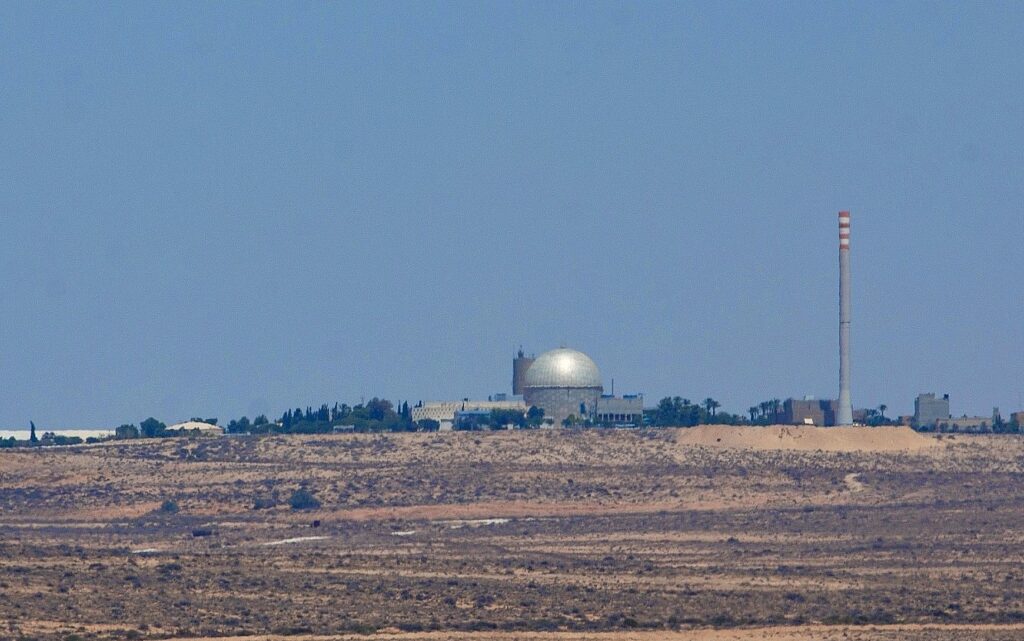
There are several sinister goals Israel is trying to achieve or has already achieved by virtue of possessing a sizeable nuclear arsenal, along with the required delivery systems. These goals include the following:
1. Achieving perpetual strategic superiority over the entire Arab world as well as regional non-Arab Muslim countries such as Turkey and Iran. Which amounts to forcing the Arab-Muslim Middle East into a strategic inferiority vis-à-vis the apartheid Jewish state.
2-Fortifying the Zionist scheme by adopting unprecedented draconian measures against Palestinians in Israel itself and the Occupied Territories (already over 50% of the total population).
Such exceptionally harsh measures might involve, inter alia, a partial genocide, carried out under the guise of a disingenuous civil war, concocted by the Zionist leadership as a pretext, which would trigger a massive flight by Palestinians similar to the Syrian or Ukrainian scenarios.
This is not a fantastic scenario as some observers might be tempted to think. Israel has already decapitated all remaining possibilities for the establishment of an independent and territorially contiguous Palestinian state.
Moreover, the US seems either utterly unable or unwilling or both, to force a recalcitrant Israel to dismantle or abandon its illegal settlements in the West Bank.
Hence, Israel might eventually reach the conclusion that ethnic cleansing of Palestinians, even one carrying the hallmarks of a real genocide, is the only solution for the worsening demographic crisis facing the Jewish state.
A few years ago, Jewish settler leaders expressed their hope that Palestinians would flee without a lot of bloodshed!
“But in case they don’t, we will have to do the job by hook or crook.”
This writer heard one settler from the settlement of Kiryat Arba near al-Khalil saying “ I wouldn’t mind killing a few thousand Palestinians if that would trigger the departure of a million or 2 million Arabs.”
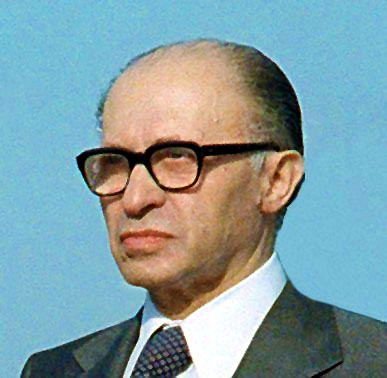
Menachem Begin; a former terrorist Prime Minister of Israel, in his Book, the “Revolt, ” described the expulsion of the bulk of Palestinians following major Jewish massacres of Palestinian villagers in 1948, such as Dir Yasin, as a miraculous breakthrough since Israel would not have been created without it. Hence, present Zionist leaders pray that the “miracle” be repeated and millions of Palestinians would leave, admitting though that “no feat like this would be bloodless.”
The reason I specifically mentioned Egypt, Saudi Arabia, and Turkey has to do with Israel’s Talmudic ambitions to occupy large chunks of these countries “when the opportunity arises.”
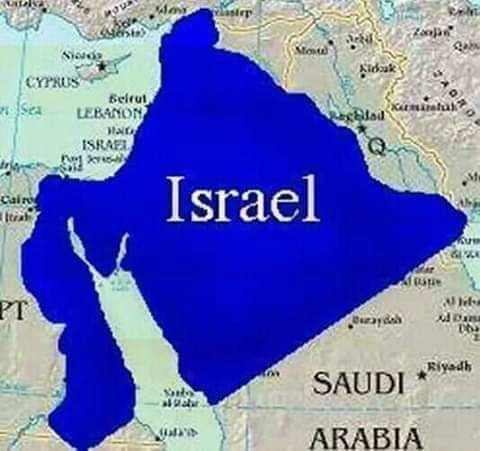
According to Jewish History, Jewish Religion, The Weight of Three Thousand years” by Israel Shahak, Israel’s Talmudic borders are as follows: “In the south, all of the Sinai Peninsula and a part of northern Egypt up the environs of Cairo; in the East, all of Jordan a large chunk of Saudi Arabia, all of Kuwait, and a large part of Iraq up to the Euphrates; in the north, all of Lebanon, all of Syria and a large part of southern Turkey up to Lake Van, and in the West, Cyprus.”
Jewish History, Jewish Religion; the Weight of Three Thousand Years, Israel Shahak, Pluto Press, 1994, p.9

These ambitions are not abstract or far-fetched notions that belong to the realm of the impossible as far as powerful Talmudic circles are concerned.
According to Shahak, “an enormous body of research and learned discussion, based on these borders, embodied in atlases, books, articles and more popular forms of propaganda is being published in Israel.
Jewish History, Jewish Religion; the Weight of Three Thousand Years, Israel Shahak, Pluto Press, 1994, p.9
What can be done to rectify this unbearable anomaly?
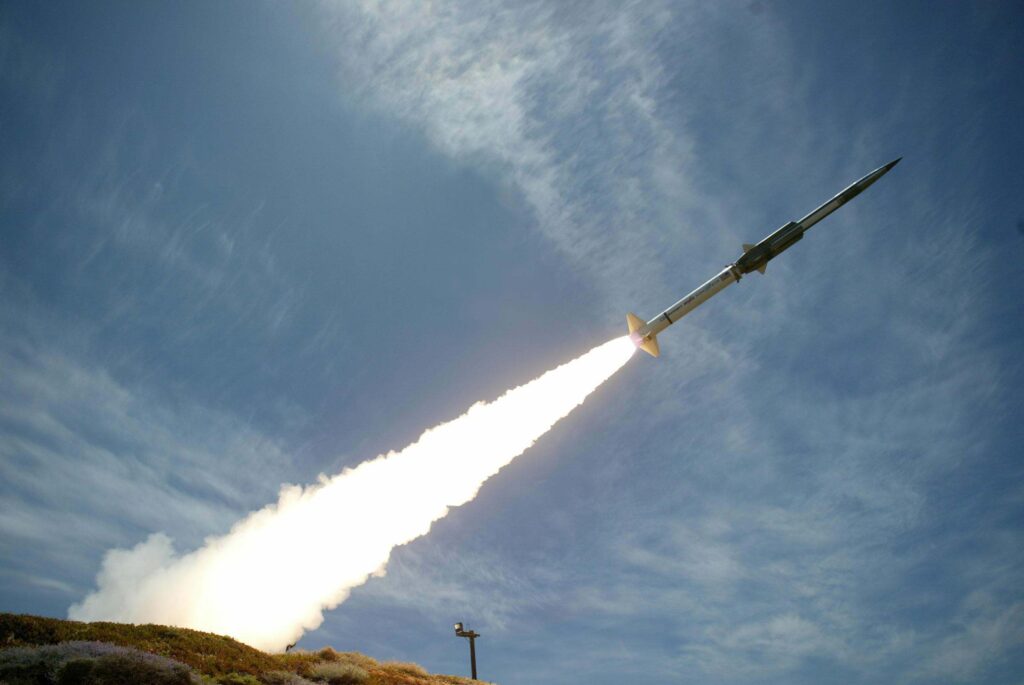
I think treating this matter begins with renewing and reinforcing our realization that this strategic aberration cannot be allowed to linger forever since its continuation is tantamount to perpetuating and consolidating Jewish hegemony and supremacy over one-third of the world’s Muslims.
Yes, we do realize that without a submissively pliant America, Israel is a little more than a Kosher idle wind. But for the bulk of the Zionist clique effectively controlling the American government, Israel must always come first, even before America itself.
I don’t believe in the Protocols of the Elders of Zion, and I absolutely despise the silly antics of anti-Semites, past and present. None the less, we as Muslims must have enough rectitude and moral honesty to call the spade a spade.
Moreover, we shouldn’t go too far by indulging in infinite absurdity like babbling about defeating “American imperialism!” as a prelude to defeating Israel. In fact, destiny and history are evidently more able to defeat America. True, America is not a lame duck yet, but it is no longer the omnipotent superpower it once was as we have seen the limitations of its powers ever since the outbreak of the Ukrainian crisis.
Read also: Thanks to Pakistan’s nuclear deterrent
We certainly are not seeking to achieve the Mutual Assured Destruction equation with America. We, too, have to be aware of our own limitations.
However, in a world where brutal force has the loudest voice, we can’t be like helpless orphans awaiting rescue from a bunch of thieves, rapists and child killers. After all who will help us if we don’t help ourselves?
I am not alluding to the little men reclining in Israel’s lap!
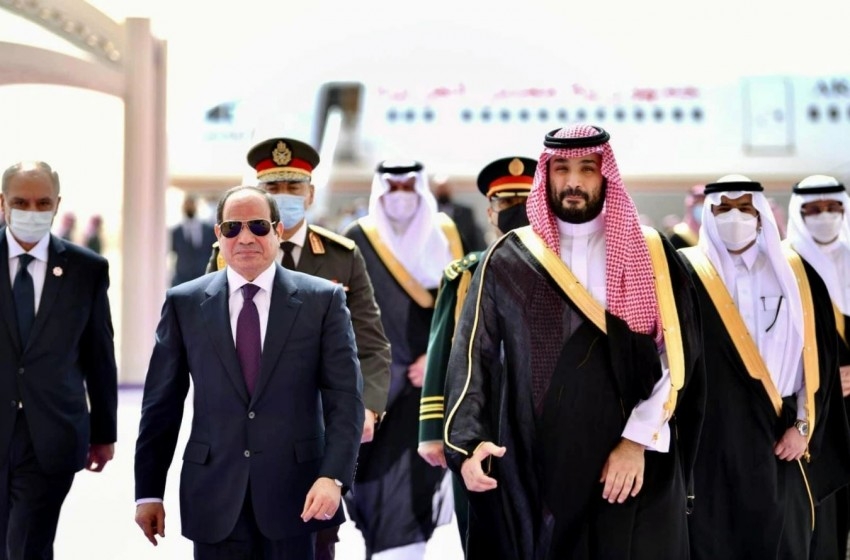
“When I say “We,” I am not thinking of this Sheikh, or that king or Emir. These mentally-retarded “little men” are more than just part of the problem. They are the problem itself. They are a huge burden upon themselves and their peoples as the strategic preoccupation of most of them doesn’t really exceed a woman’s underwear. They are a cancer upon the collective conscience of the Muslim Umma.
Read also: Is America Embracing Dictatorship In The Arab World?
In the Muslim world, there are success stories and the overall strategic outlook is not that gloomy. None the less, I believe a close nuclear cooperation between certain Muslim countries must be ensured and cemented.
It is really shameful and quite embarrassing that a country such as Egypt, with a population of over a hundred million people, remains without a nuclear deterrent. But Egypt has only itself to blame.
Read also: The Fanatic Zionist And Me: Truth Versus Arrogance Of Power
Conclusion
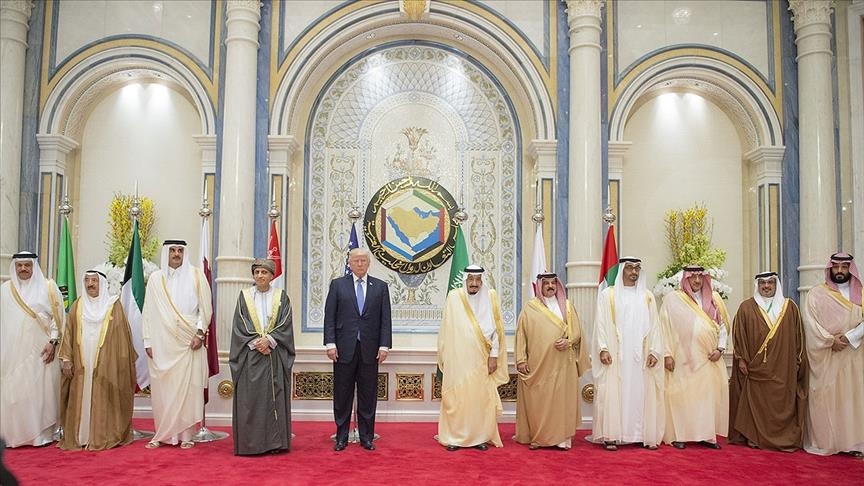
In the final analysis, a country whose masses cannot freely elect their rulers cannot really be independent and truly sovereign.
But we are talking about contemptible rulers who value the “legitimacy” that comes from the powerful Jewish lobby in America more than that which comes from their own peoples’ acceptance of them.
Read also: The Un-Islamic Islam Of The Saudi Ruling Family
Unfortunately, this is the case in virtually all Arab countries from Manama to Casablanca. We all know that rectifying the nuclear imbalance with Israel is a paramount duty, though an exceptionally arduous task.
However, if a duty cannot be carried out unless certain requirements are secured, securing these requirements becomes a paramount duty itself. I can only say that much about this extremely sensitive subject.
I do care about my Umma, which ought to be one Umma, not 55 states, Sheikhdoms and fiefdoms with conflicting loyalties, depending on the mood of their mostly unelected ignorant leaders.
A few weeks ago, I was asked about my happiest day in life and my sadist. The happiest day was when Pakistan, a country I love but have never been to, succeeded in detonating its first nuclear device. And the Sadist day was when Israel’s man in Egypt, Abdul Fattah Sissi, in a bloody coup backed by Israel, Saudi Arabia and UAE, and, of course, the US, toppled Professor Muhammed Mursi, the first ever and last democratically-elected president in Egypt’s 7000-year-history.
Read also: Pakistan is a Badge of honor for Muslims
You may like
Featured
The 20-Point Gaza Plan: A Blueprint for Dispossession?
Published
4 days agoon
October 6, 2025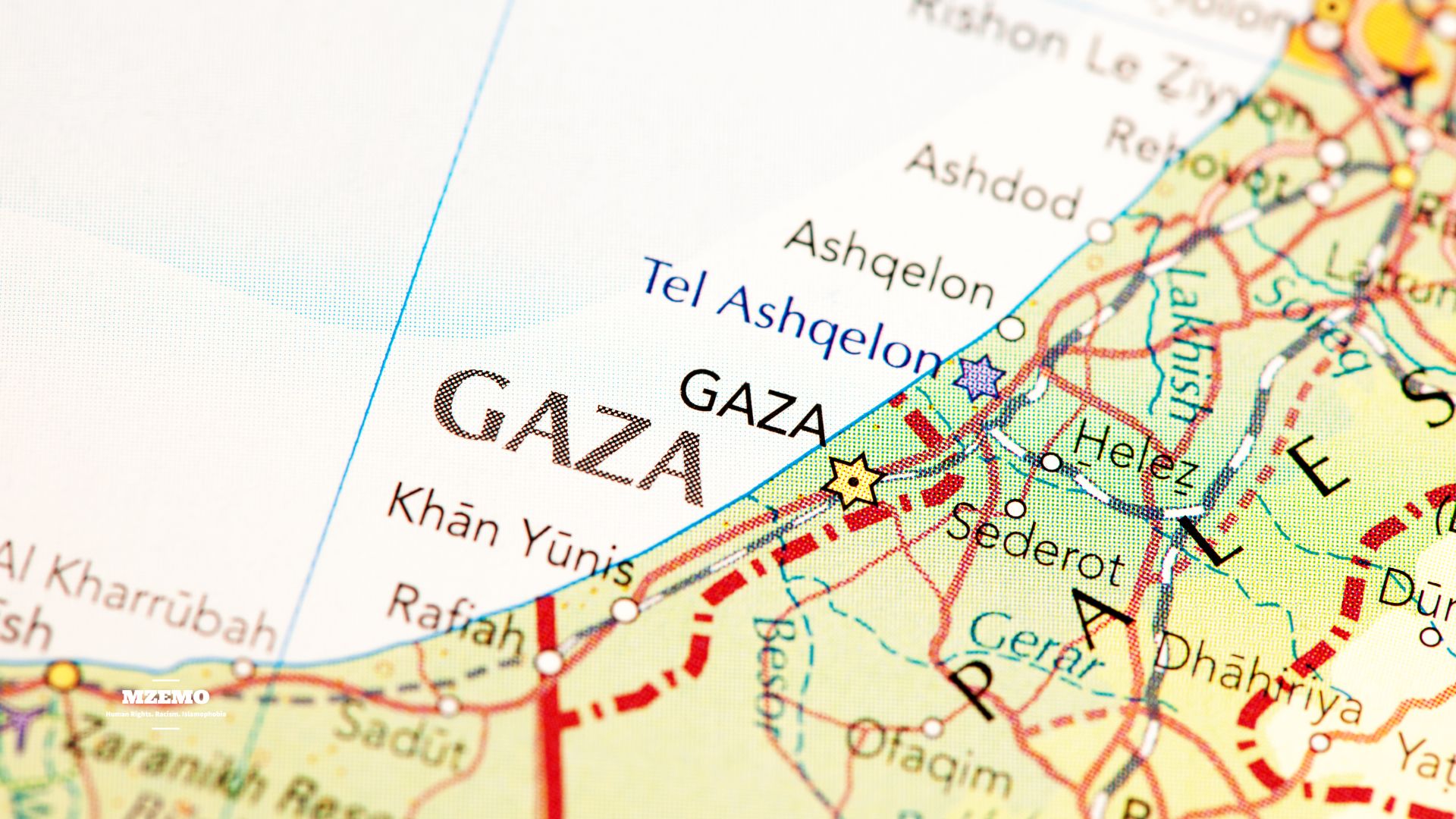
As Gaza’s hospitals ran out of oxygen and children continued to die of hunger, a new “Peace Plan” emerged from Washington. The US President Donald Trump’s 20-Point Gaza Plan was announced recently in late September 2025. It has promised to rebuild Gaza and bring “a new era of stability.” However, to many Palestinians and observers across the world, it sounded like something else: a blueprint to erase what remains of Gaza’s sovereignty. What was initially discussed with the Arab states as a cooperative humanitarian initiative was, by the time of its release, cleverly reshaped. It is rewritten to preserve occupation under a new label.
From Arab Consensus to American Control
Early drafts of a postwar Gaza plan were reportedly framed through consultations among Arab and Muslim nations. They emphasized three principles: Palestinian self-rule, unrestricted humanitarian access, and reconstruction without foreign trusteeship. Yet as negotiations evolved, the plan was absorbed by U.S. diplomacy and redrafted in a way that aligned with Israeli conditions rather than Arab consensus. Several diplomats confirmed that Washington’s version quietly removed any reference to Palestinian sovereignty, replacing it with phrases like “transitional governance” and “security oversight.”
Even before it was officially unveiled, Reuters reported growing unease among Arab delegations, who complained that the new text ignored their agreed-upon points and reflected Israel’s security agenda. Pakistan’s foreign minister stated openly that “Trump’s 20-Point Gaza Plan is not our plan.” The shift marked more than a diplomatic re-edit as it exposed the power imbalance shaping Gaza’s future.
The 20 Points: Promises and Omissions
Publicly, Trump’s 20-Point Gaza Plan claims to rest on four pillars: ceasefire, hostage release, reconstruction, and demilitarization, yet its deeper clauses reveal troubling gaps. There is no guarantee of Palestinian sovereignty, no timeline for Israeli withdrawal, and no provision for international accountability. Instead, it envisions Gaza’s future under external trusteeship, with reconstruction funds controlled by a multinational board led by Washington and oversight committees dominated by Israel and allied states.
Several points speak of creating “safe redevelopment corridors” and “security zones,” terms human rights experts warn could mask forced relocations and demographic engineering. The plan further ties aid to behavior clauses, conditions governance on foreign approval, and places border control under “temporary supervision,” a phrase that critics fear means indefinite control. Amnesty International cautioned that “reconstruction must not become a pretext for displacement or collective punishment.”
In essence, while the plan’s language of peace and rebuilding appeals to diplomacy, its structure embeds dependency and control. To rebuild Gaza without granting it freedom is, as one Palestinian analyst put it, “to rebuild the prison walls, just higher and cleaner.”
The Human Cost Hidden Behind Diplomacy
Behind every clause of this plan lies a humanitarian catastrophe. The World Health Organization confirms that more than half a million people in Gaza face famine-level hunger, and over 360 have already died from malnutrition. The UN’s humanitarian office says 80% of Gaza’s population now depends on aid that Israel continues to restrict. In this reality, talk of “redevelopment corridors” rings hollow. Gaza does not need trusteeship—it needs food, medicine, and an end to the siege.
On the streets of Rafah and Deir al-Balah, survivors of months of bombardment heard the plan’s announcement with disbelief. “They speak of building new homes,” one displaced teacher told a reporter, “but they won’t even let cement cross the border.” Another woman asked, “Who gives them the right to plan our lives while we bury our dead?” These voices reveal the heart of Gaza’s objection: no document signed abroad can substitute for the will of its people.
Resistance and Rejection
Hamas’s initial response to the plan was mixed. The group welcomed references to reconstruction and aid delivery but rejected disarmament and external trusteeship. “No peace built on surrender will last,” its spokesman said. Across Palestinian civil society, activists dismissed the plan as “occupation repackaged.” Hashtags like #NoTrusteeship and #GazaIsNotForSale flooded social media, uniting Gazans and diaspora voices in digital defiance.
Former U.S. diplomat Robert Malley, writing for Le Monde, described the plan as “a maze of ambiguities and potential pitfalls.” His analysis noted that the proposal’s vagueness is deliberate—creating space for powerful states to interpret its clauses to their advantage. It is a familiar strategy: promise reconstruction while ensuring dependency.
Reactions among Arab and Muslim nations were cautious and divided. The Arab League issued a restrained statement calling for further review, while countries like Algeria, Iran, and Pakistan warned that any plan lacking Palestinian representation was unacceptable. Meanwhile, Western governments praised the proposal as a “bold step toward stability.” For Gazans, these words offered little comfort. They have seen such language before in the Oslo Accords, the Road Map, and countless other documents that delivered control, not liberation.
International law offers a clear measure. The plan’s idea of trusteeship contradicts the principle of self-determination guaranteed by the UN Charter and multiple General Assembly resolutions. Legal scholars argue that placing Gaza under external administration without consent would constitute a new form of occupation. The International Court of Justice’s 2024 advisory opinion warned that “peace agreements cannot validate the continuation of unlawful control.” Trump’s plan, critics say, does precisely that.
What True Peace Would Look Like
A genuine peace framework would begin not with political engineering but with justice. It would:
- End the blockade entirely, allowing Gaza to trade and rebuild freely.
- Place reconstruction under Palestinian-led management, not foreign trusteeship.
- Hold accountable those responsible for war crimes and the starvation policy.
- Guarantee the right of return and compensation for the displaced.
- Empower Gaza’s people to elect their own representatives without external approval.
Anything less is not peace but an administrative occupation.
The Moral and Legal Test for the World
The 20-Point Plan is not a diplomatic breakthrough but a moral test. To accept it as written would mean endorsing a future where Gaza remains controlled by the same forces that destroyed it. It would normalize collective punishment under the banner of reform. And it would bury the core demand that Palestinians have made for decades: the right to decide their destiny.
Human Rights Watch, Amnesty International, and UN experts have all warned that Gaza’s crisis cannot be resolved through imposed governance. The path forward must restore dignity, not dependency. Yet, while the world debates corridors and committees, Gaza’s hospitals run without light, and its children die nameless in the dark.
The Bottom Line
Trump’s 20-Point Gaza Plan may speak the language of peace, but its structure carries the logic of control. For Gaza, peace cannot be built by those who silence its voice. True reconstruction will not come from Washington or Tel Aviv, but it will rise from the streets of Khan Yunis and the refugee camps that still believe in freedom.
The people of Gaza do not reject peace but subjugation disguised as diplomacy. Their message to the world remains clear: “We will rebuild, but on our own terms.” And until that right is honored, no plan, however polished, can claim the name of peace.
Featured
Global Sumud Flotilla Intercepted: Israel’s Naval Siege, Famine and Resistance
Published
4 days agoon
October 6, 2025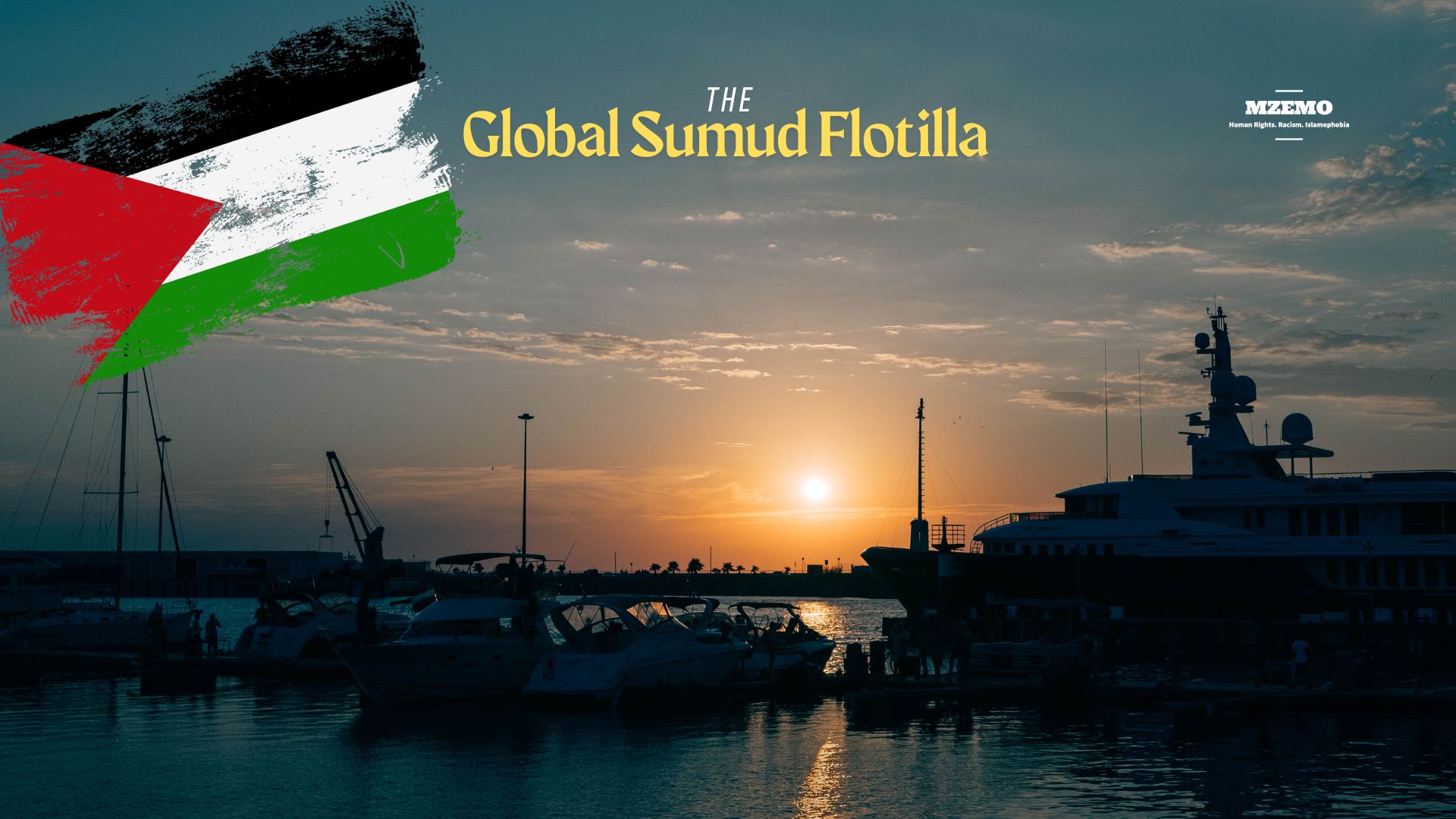
The Mediterranean dawn on 2nd October, 2025, was meant to carry a different story. For hundreds of activists aboard the Global Sumud Flotilla, including doctors, artists, parliamentarians, and volunteers from over 37 countries, it was a mission of a lifetime. Their ships carried medical supplies, food packets, and a message written in humanity’s oldest language: solidarity. However, as Israeli naval vessels surrounded them 40 nautical miles from the Gaza Strip, that message was silenced most brutally. Within hours, the flotilla had been seized, its passengers zip-tied and blindfolded, and its aid confiscated.
Israel’s interception of the Global Sumud Flotilla is not just a naval incident but another chapter in the long story of Gaza’s suffocation. In a land already starved by siege, famine, and bombardment, this act tightened the blockade around two million civilians who had endured what human rights organizations now recognize as a continuing genocide.
Gaza in Famine: A Manufactured Catastrophe
According to the World Health Organization, over half a million Palestinians are now living under confirmed famine conditions. Malnutrition has become a silent killer, claiming the lives of more than 360 Palestinians, including 130 children. The Integrated Food Security Phase Classification (IPC) places Gaza in Phase 5, which is the highest possible level of hunger emergency, categorized as Catastrophic. Gaza’s farms, bakeries, and water networks have been systematically destroyed, leaving families with little more than contaminated water and animal feed to survive.
The famine is not a natural consequence of war but a lethal weapon. Amnesty International has repeatedly stated that Israel is using starvation as a method of warfare, an act that meets the legal threshold for genocide.As per a report of Amnesty International published in October,
“Israel’s deliberate starvation of civilians is a war crime.”
Each blockade, each denied aid truck, and now each seized ship deepens this crime against humanity.
What is the Global Sumud Flotilla?
The flotilla, meaning steadfastness in Arabic, embodied the principle of Sumud, which means unshakable resistance. It consisted of more than 40 vessels and 500 international participants from 37 countries. Departing from ports across Europe and North Africa, it aimed to reach Gaza’s coast peacefully and symbolically challenge Israel’s naval siege. Among those on board were parliamentarians, humanitarian doctors, and activists, including climate advocate Greta Thunberg, united under one flag: human conscience.
Their mission was not to wage war, but to deliver aid and visibility. Yet as their ships neared Gaza, Israeli drones shadowed them, communications were jammed, and warning messages filled the airwaves. Finally came the interception.
The Interception: How the Siege Struck at Sea
Around midnight, Israeli commandos surrounded the final ship, Marinette, approximately 42.5 nautical miles off Gaza’s shore. Activists reported being forced to kneel for hours, zip-tied and beaten, as soldiers confiscated cameras and personal belongings. All contact was cut as the ships were redirected to Ashdod Port inside Israel. The Israeli military justified the action by claiming the flotilla violated a lawful blockade and that “no humanitarian aid was found aboard,” which is a statement disputed by multiple international witnesses.
More than 450 activists were detained, among them citizens of Spain, Italy, Turkey, South Africa, and the United States. Many were held without immediate consular access, with reports of inhumane treatment emerging within days. Amnesty International condemned the detentions as “an unlawful act of aggression” and a “deliberate effort to enforce collective punishment through starvation.”
Before communications were cut, Irish activist Tadhg Hickey recorded a final message: “We sail not just for Gaza’s survival, but for our own humanity. If silence is complicity, then to sail is resistance.” His words have since circulated across social media, embodying the flotilla’s spirit of nonviolent defiance.
Survivors deported to Turkey later described their ordeal. “We were treated like criminals for carrying food,” one volunteer said. “They zip-tied our wrists until they bled, but we’d do it again because Gaza is worth every risk.” Their testimonies echo the voices of thousands protesting globally after the interception, from London to Kuala Lumpur, demanding accountability and an end to the siege.
Law, Morality, and the Machinery of Blockade
The Israeli blockade, in place since 2007, has been condemned as illegal under international humanitarian law. The Fourth Geneva Convention forbids the collective punishment of civilians, and maritime law recognizes the right to deliver humanitarian aid in the face of mass suffering. Yet Israel continues to act with impunity, supported by global silence and diplomatic paralysis.
The United Nations Office of the High Commissioner for Human Rights (OHCHR) has warned that the blockade constitutes “a form of apartheid and starvation-based warfare.” Meanwhile, the UNRWA reports that 80% of Gaza’s population now depends on humanitarian aid for survival—aid that often never arrives.
Each intercepted vessel, carries a moral weight beyond its cargo. The Global Sumud Flotilla is more than a convoy; it was a reminder that humanity refuses to abandon Gaza to darkness. To criminalize compassion is to declare war on conscience itself.
Global Reactions and Outrage
Governments across the world have expressed alarm. Switzerland, Spain, and South Africa lodged formal protests, demanding explanations for the detention of their citizens. Turkish authorities arranged emergency flights to repatriate deported activists. Protests erupted in Paris, Istanbul, and Jakarta, as demonstrators carried placards reading, “Feeding Gaza is not a crime.”
Yet, in the corridors of power, condemnation remains cautious. Western governments have largely avoided direct criticism, framing the interception as a “security matter.” Meanwhile, humanitarian organizations, from Amnesty International to Human Rights Watch, have demanded that the blockade be lifted immediately and that the international community recognize the ongoing genocide.
The Broader Picture: Gaza’s Siege as Global Failure
The interception of the flotilla is not an isolated act, but the symptom of a global collapse of moral responsibility. While Gaza’s hospitals run without anesthesia and its children starve in makeshift tents, world leaders debate terminology instead of stopping the crime. Every intercepted aid convoy, every silenced activist, marks another day when humanity looked away.
The sea that once connected civilizations now separates the starving from salvation. Israel’s naval blockade is not a shield but a weapon. It starves, isolates, and erases. And yet, every time someone dares to sail toward Gaza, the truth resurfaces: even in the face of warships, the human spirit remains unsinkable.
However, the Global Sumud Flotilla did not fail, but it exposed the blockade for what it truly is: an act of cruelty sustained by silence. It reminded the world that solidarity still sails, that compassion still defies orders, and that Gaza’s struggle is humanity’s test.
Every intercepted ship tells the same story: that courage is contagious, that empathy is rebellion, and that the people of Gaza are not forgotten. The world may build walls of steel and propaganda, but the sea remembers those who dared to cross it—for justice, for life, and for Gaza.
Featured
If Law Still Means Anything: What the UN Genocide Finding Demands Next
Published
2 weeks agoon
September 28, 2025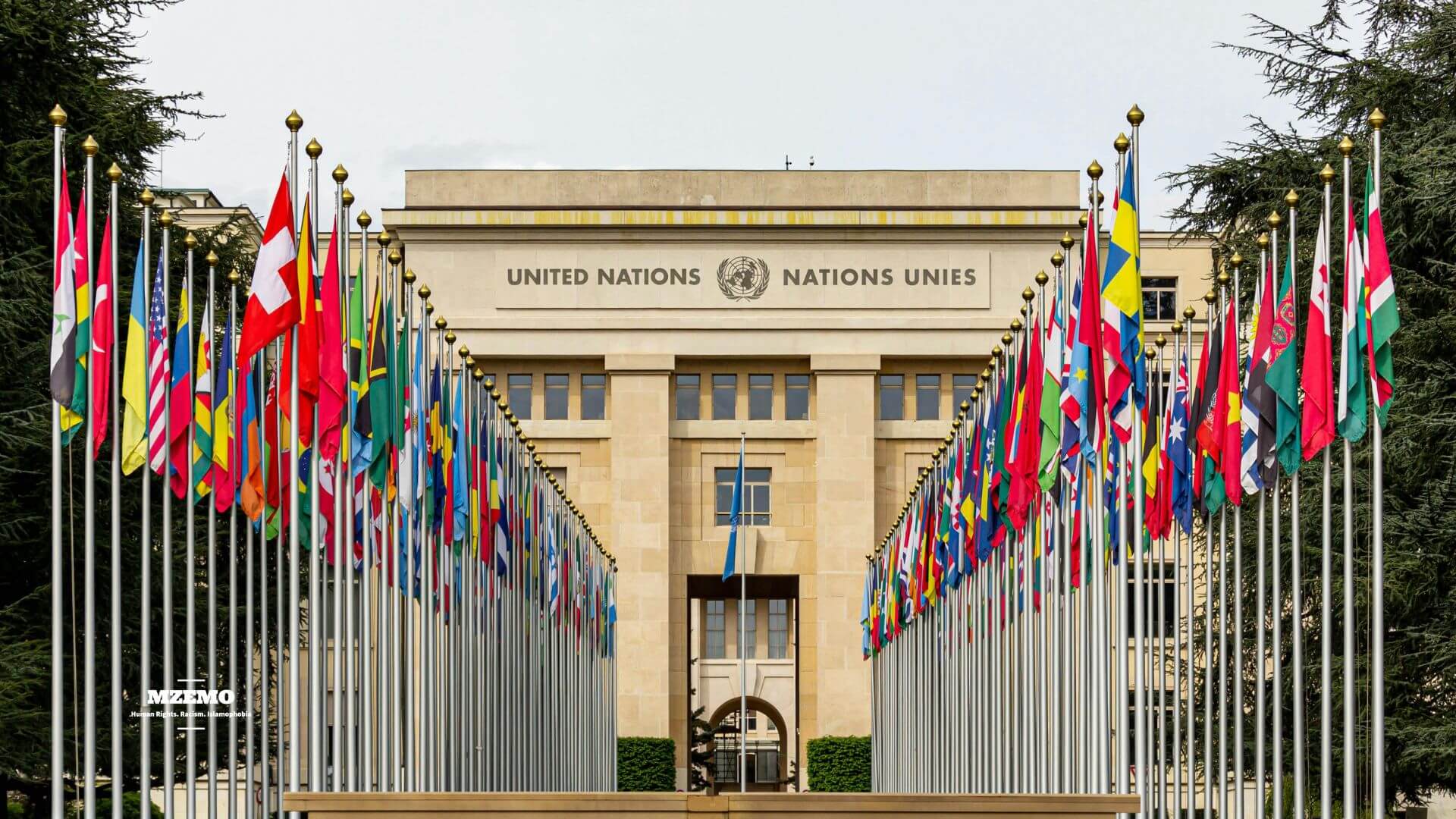
A mother in Gaza scrolls past a headline on a cracked smartphone: “UN inquiry finds genocide.” The generator coughs once and dies. In the quiet that follows, the question is small and sharp: If law still means anything, what happens now?
What does the Finding Mean?
The UN Independent International Commission of Inquiry (CoI) concluded that Israel has committed genocide in Gaza. It has created conditions meant to destroy life. This is not a social media label but a formal UN investigation using the standard of “reasonable grounds to conclude.” It is not a criminal verdict that belongs to courts, but it triggers duties for states and institutions that signed up to prevent and punish genocide.
The findings sit alongside the International Court of Justice (ICJ) provisional measures from January, March, and May 2024 ordering Israel to prevent genocidal acts while enabling humanitarian aid. These orders are legally binding and not just a piece of advice.
What States Must Do Now?
The Genocide Convention creates a duty for every state to prevent and punish genocide wherever there is a serious risk. After a UN genocide finding, the excuses thin out. Here is what action looks like in the real world:
1) Stop Feeding the Fire
Suspend weapons transfers, ammunition, and dual-use items that risk enabling unlawful attacks. Close loopholes in export licenses and re-exports. This applies first to Israel’s closest backers, including the United States and European states. Continuing diplomatic cover, like the sixth U.S. veto of a ceasefire, does not erase responsibility, but it deepens it.
2) Force Open the Lifelines
Use leverage so that aid, fuel, and medical supplies may move now, especially to the north. De politicize access and back neutral monitoring. Protect UNRWA shelters that have been hit again and again.
3) Back the Courts
Cooperate with the ICJ as a state responsibility and the International Criminal Court as an individual responsibility. Preserve and share evidence. If arrest warrants are issued, assist rather than obstruct.
4) Tell the Truth at Home
Launch transparent parliamentary reviews of your government’s role. Publish what was sold, licensed, trained, or shared during this war, and what will stop today.
What Must Change on the Ground?
Law only matters if it touches the day, and in Gaza, that day looks like this:
A Ceasefire that actually holds. Not a pause or a window but a complete halt to bombing that lets ambulances move, families sleep, and aid surge without fear. Moreover, reopening and securing corridors, including the northern ones, where hunger is worst, is a must-have. Restore fuel for hospitals, bakeries, water desalination, and sewage pumps. End the ritual of “approved” lists that starve clinics of surgical kits.
Protect people where they stand by stopping demolitions that erase neighborhoods and block return. Demine unexploded ordnance so children can walk to water without losing limbs. Shield health care from such attacks. Let families find the missing and bury the dead while supporting DNA identification, power labs, and safe access to cemeteries.
“Human dignity is not a luxury.”
The Ledgers that Don’t Lie
Numbers are not feelings, but they make denial harder. The ICJ told Israel to prevent genocidal acts and enable aid, which was a binding order as discussed earlier. It should have been taken seriously. UNRWA also reported multiple shelters struck within days in mid-September, killing and injuring people who fled for safety.
Satellite analysis for the UN found roughly three-quarters of structures in Gaza damaged or destroyed by now, with Gaza City suffering fresh tower demolitions later in the month. We do not list numbers to numb you, but rather to document a few so that history cannot pretend it did not know.
Accountability that Counts
Real accountability is a sequence and not just a slogan. It is the responsibility of states to enforce existing orders of the ICJ. If the Security Council blocks action, take the case to the UN General Assembly under the Uniting for Peace resolution to recommend collective measures, including the suspension of arms, guarantees of aid access, and reliable monitoring.
When it comes to individual accountability as per the ICC rulings, one should support investigations into war crimes, crimes against humanity, and genocide. Share satellite imagery, export records, and military-aid timelines. Do not host or welcome officials under credible suspicion and prepare to act on arrest warrants when they come.
Application of universal jurisdiction is compulsory, including travel bans and asset freezes on specific officials and entities tied to unlawful attacks. Ensure reparations and return while documenting destroyed homes, clinics, and schools. The right to safe, voluntary return cannot be bombed out of existence.
So, if law still means anything, it means ceasefire, access, protection, and true justice. It means the phones in Gaza do more than carry bad news. When the law works, a generator coughs back to life, a surgeon’s lamp stays on, and a shelter door stays standing through the night.
Trending
-

 Featured2 years ago
Featured2 years agoWorld passively watching as Israel perpetrates open-ended massacre in Gaza
-

 Featured3 years ago
Featured3 years agoArgentina wins the World Cup; are there any other winners?
-

 Featured2 years ago
Featured2 years agoIsrael is Hiding Crucial Demographic Facts About Palestinians
-

 Featured4 years ago
Featured4 years agoHistory of the Ottoman Empire
-

 Featured3 years ago
Featured3 years agoChristian militia infiltrate Lebanon
-

 Featured5 years ago
Featured5 years ago“Do Not Waste Water Even If You Were at a Running Stream” Prophet Muhammad
-

 Featured2 years ago
Featured2 years agoMuhammed: The Greatest Man to walk on Earth
-

 Featured3 years ago
Featured3 years agoWorld Leaders Remain Silent Over Human Rights Violations in the UAE














